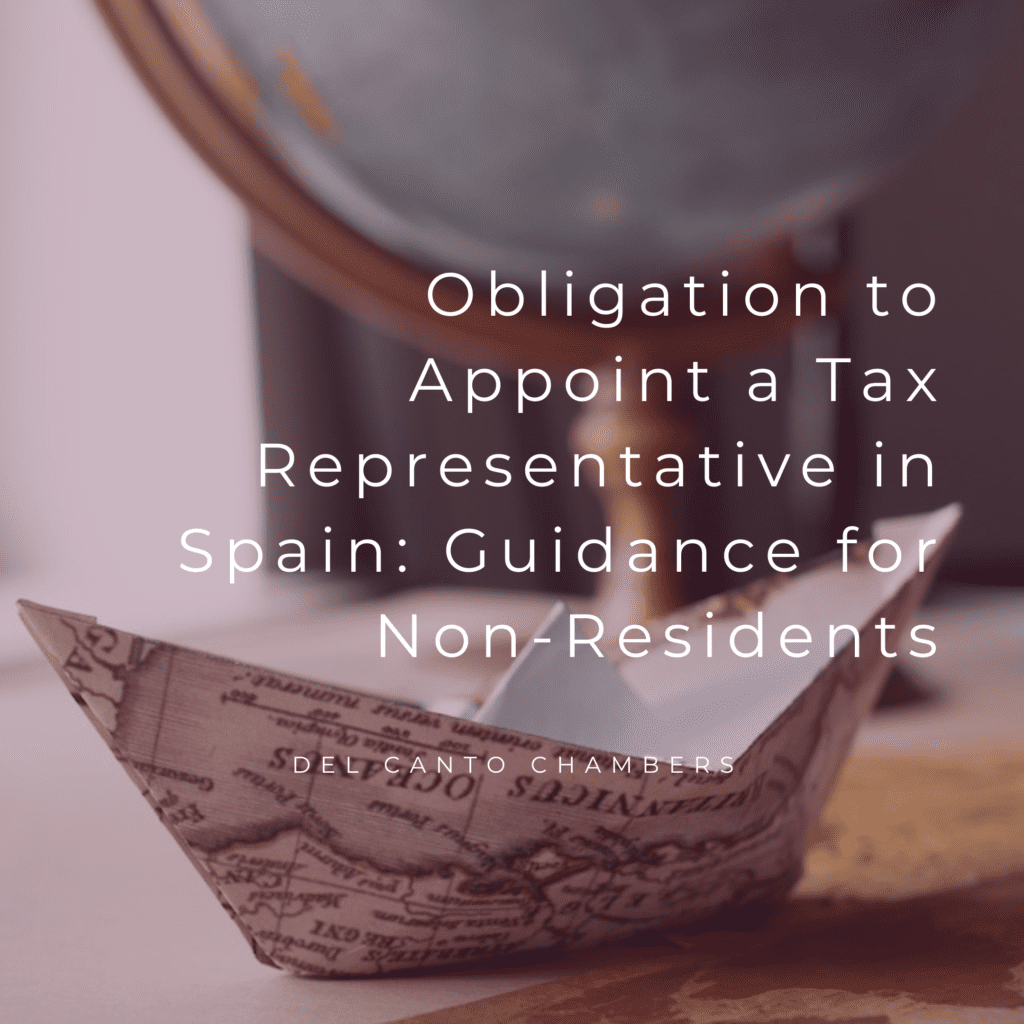Understanding the obligation to appoint a tax representative is crucial for non-residents conducting economic activities in Spain. This blog post elucidates the scenarios under which such an appointment is mandatory, referencing key guidelines from the Spanish Tax Agency and recent binding consultations.
Who Needs a Tax Representative in Spain?
Non-residents in Spain, especially from non-EU countries, may need to appoint a tax representative in various circumstances:
1. Operating Through a Permanent Establishment (EP)
Non-residents operating in Spain through a Permanent Establishment must have a tax representative.
2. Provision of Services Without a Permanent Establishment
This includes services, technical assistance, installation, or assembly arising from engineering contracts or any economic activities in Spain, where the taxable base is the difference between total income and expenses related to personnel, material procurement, and supplies.
3. Entities With “Presence in Spanish Territory”
Entities under an income attribution regime constituted abroad but with a presence in Spain must appoint a representative.
4. Specific Requirements by the Tax Administration
In cases where the nature and amount of income obtained or the ownership of real estate in Spain, the Tax Administration may require the appointment of a representative.
5. Residents in Non-Cooperative Jurisdictions
Residents in countries without an effective exchange of tax information with Spain, holding property or rights executed or exercised in Spanish territory (excluding values traded on official secondary markets), are obliged to appoint a tax representative.
Key Exemptions
Notably, owning or renting a property in Spain is not considered an economic activity and thus does not necessitate appointing a tax representative.
Binding Consultations
- Consultation V0756-21 (30/3/2021): For a Swiss resident, merely acquiring and leasing properties in Spain is not an economic activity. It requires minimum infrastructure and an organisation of business resources, including a full-time employee under contract.
- Consultation V0116-20 (21/1/2020): Regarding VAT, the permanent exploitation of a leased property only establishes a permanent establishment if there is a set of material and human resources for conducting the activity, even indirectly or subcontracted.
Conclusion
Understanding these guidelines is vital for non-residents involved in economic activities in Spain. Failing to comply with the obligation to appoint a tax representative can lead to significant legal and financial repercussions. As always, it’s advisable to seek professional guidance in these matters.
Paula Losada, International Tax Adviser and Economist, works as a Spanish Tax Consultant for international and Spanish companies
Del Canto Chambers is a leading London Barristers Chambers specialising in Law, Tax & Legal Advice. Our dual-qualified, multilingual lawyers specialise in international law and tax and have worked on over 500 cases globally. Contact us
Disclaimer: This blog post is intended for informational purposes only and does not constitute legal advice. For specific cases, please consult a qualified tax professional.





